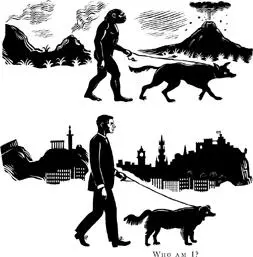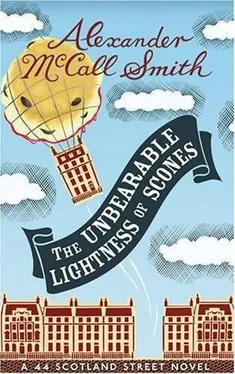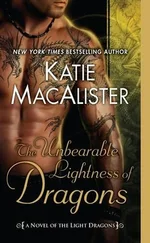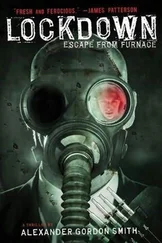Matthew took the point. “So what do we do? We know that the painting must have been stolen. Do we take it to the police?”
“I see no alternative,” said Angus. “They’ll see if it’s on their list of stolen paintings.”
“And if it isn’t?”
Angus shrugged. “I suppose they give it back to the O’Connor family. To Frankie O’Connor.”
Matthew greeted this with silence.
“And yet,” Angus conceded. “And yet. The painting isn’t theirs. It really belongs to the nation, in my view – that is, if no proper owner comes forward.”
Matthew was thinking. “If we give it to the police, we still have a problem. Frankie O’Connor. He’s not going to take kindly to that. And those people, you know what they’re like… We’re in danger, Angus.”
Angus had to agree: Frankie O’Connor would certainly not take kindly to hearing that the painting had been given to the police. Unless… “He’s only expecting a painting,” Angus said suddenly. “He won’t have the first clue which painting. The old switcheroo, Matthew!”
Matthew waited for further explanation.
“I have plenty of portraits in my studio,” said Angus. “We merely put one of these in the frame that currently holds the Raeburn. Mr. Francis O’Connor will be perfectly happy. In fact, we can offer to buy it from him. The new Raeburn, that is.”
Matthew was not immediately convinced, but as their journey continued, Angus managed to persuade him that this was their best course of action. “I have the perfect candidate for the switch,” he said. “I have a portrait of Ramsey Dunbarton in the studio that I really don’t know what to do with. His widow, Betty, didn’t want it – she claimed that she didn’t want her memories of Ramsey to be disturbed by a painting. So we’ll pass that on to Frankie.”
“But does he look at all like Burns?”
“No,” said Angus. “But I’ll touch it up a bit. I’ll use acrylic. Dries in an instant. I’ll give him the Robert Burns treatment. Poor old Ramsey.”
“Who was he?” asked Matthew.

“He was a lawyer in Edinburgh. A very fine man, in his way. He was terrifically proud of having played the Duke of Plaza-Toro in The Gondoliers at the Church Hill Theatre.”
“We all have something,” mused Matthew. And what, he wondered, was he proud of? Elspeth Harmony, he decided. He was proud that he had married Elspeth Harmony, that she had thought him worthy of her. And Edinburgh. He was proud of Edinburgh too, and of Scotland; and why not? Why should one not be proud of one’s country – for a change?
82. Lessons in Leadership
Bertie had now attended two sessions of the First Morningside Cub Scouts in their meeting place in the Episcopal church hall at Holy Corner. The first session had involved a bitter disappointment, when Olive had turned up too. That was bad enough, but her immediate promotion to sixer had made things far worse.
“It’s very unfair,” Bertie had observed to Tofu. “She knows nothing about cub scouts. In fact, Olive knows nothing about anything. She’s the one who said that Glasgow was in Ireland. I remember her saying it.”
“Stupid girl,” said Tofu. He himself was not sure about the location of Glasgow, but he was not going to reveal that. “Girls are really stupid, Bertie. Particularly Olive.”
Bertie, who was fair-minded, felt that he could not let this pass. “They’re not all stupid,” he said. “Look at Miss Harmony. She used to be a girl. And she’s not stupid.”
Tofu looked pensive. “Maybe. But then, look at your mother, Bertie. Look at her.”
Bertie changed the subject. “And she’s going to throw her weight around, now that she’s a sixer. She said that we’re going to have to pull up our socks.”
Olive had issued this warning at an early stage. Indeed, no sooner had Akela gone to deal with another preliminary administrative matter than Olive had turned to Bertie and Tofu and delivered a stern admonition.
“Let’s get one thing clear right at the beginning,” she said. “My six is going to be the best-run and most successful six in the pack. Understand?”
Tofu had glowered. Bertie had looked at the floor.
“So,” Olive continued, “I don’t want any arguing. If I say something is to be done, then it is to be done. And here’s another thing. From now on, you don’t call me by my name, you call me ‘Sixer.’ Is that quite clear?”
Bertie and Tofu had remained silent, but an extremely small boy, diminutive indeed, who had been allocated to their six, nodded enthusiastically. “Yes, Sixer,” he said.
Olive turned to this small boy. “What’s your name?” she asked.
“Ranald,” said the boy in a thin, piping voice. “Ranald Braveheart McPherson.”
Bertie and Tofu looked at him in astonishment, but Olive merely nodded. “You can be my assistant, Ranald,” she said.
“You can’t just choose your assistant like that,” protested Tofu. “Akela has to choose.”
“I think Tofu’s right,” agreed Bertie. “I don’t think that sixers have all that much power, Olive.”
Ranald stepped forward, on spindly legs. “We mustn’t argue,” he said. “We mustn’t argue with the sixer.”
This discussion on constitutional arrangements might have continued, but it was time for activities, and for the rest of the session the issue of Olive’s power did not arise. Fortunately, the games played were such as to take Bertie’s mind off the Olive problem, and at the end he decided that it might be possible largely to avoid Olive by simply ignoring her. This expedient, however, did not work so well at the second session, the following week, when Olive had watched Bertie and Tofu closely, criticising their every step and saying that they would have to do better.
“We don’t need to be quite so critical, Olive,” Akela had warned. “A good sixer encourages the others. So you should praise people as well as tell them where they’re going wrong.”
Olive had listened, but her expression was resentful, and Bertie wondered if she had internalised the message. He had read about internalising messages, and he decided that this was something that Olive was not very good at. But such reflections were soon to be abandoned when it was announced that the following Saturday afternoon the entire pack would decamp to the Meadows in order to practise map-reading and navigation skills. Compasses were issued and a fascinating hour was spent in learning how to hold a compass and how to read a map.
Akela explained that each six would be divided into two, so that the members would work in groups of three: one cub would be in charge, one would hold the map, and one would be entrusted with the compass. Bertie glanced at Tofu, who looked back at him in perfect understanding, the unspoken anxiety being: would they be with Olive?
They were not. Olive was allocated to two others, a disconsolate-looking boy and a girl with a startled expression and pigtails, who had not said anything from the moment of her enrolment. Bertie and Tofu both heaved a sigh of relief. But when Akela turned to them, they were informed that Ranald McPherson was to be in charge.
“What about me, Akela?” protested Tofu. “I’m much bigger than he is. Look. He only comes up to here. And look at his stupid legs. He’s too small to be the leader.”
“Tofu dear,” explained Akela. “Leadership is not about size; nor indeed about legs. You don’t have to be big to lead. Look at the Queen. She’s not all that tall and yet she’s a very good leader. Leadership comes from inside.”
Читать дальше













